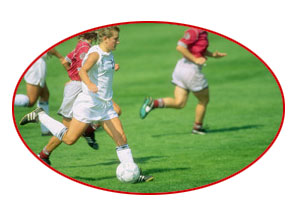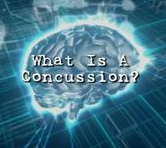|
| |
 |
|
Guidelines - INJURY MANAGEMENT  A plan of care should be comprehensive and coordinated; this will provide the most effective means to adequately care for a concussed athlete. This will include both a medical evaluation to rule out severe pathology, such as a bleed inside the skull, and neuropsychological assessment. Neuropsychological testing is clinically useful, cost-effective and readily available. In fact, the first Concussion in Sport Group (2001) labeled neuropsychology as “one of the cornerstones of concussion evaluation”, a statement that has been supported with each subsequent CISG meeting and Neuropsychological evaluation has been promoted by the National Athletic Trainers’ Association (2004, 2014) position papers. Such services are most useful when there is baseline data for that particular athlete that can be used for direct comparison. However, neuropsychological testing can also be very useful even in those cases where pre-injury information has not been obtained by comparing post-injury performance against comparable normative expectations. A plan of care should be comprehensive and coordinated; this will provide the most effective means to adequately care for a concussed athlete. This will include both a medical evaluation to rule out severe pathology, such as a bleed inside the skull, and neuropsychological assessment. Neuropsychological testing is clinically useful, cost-effective and readily available. In fact, the first Concussion in Sport Group (2001) labeled neuropsychology as “one of the cornerstones of concussion evaluation”, a statement that has been supported with each subsequent CISG meeting and Neuropsychological evaluation has been promoted by the National Athletic Trainers’ Association (2004, 2014) position papers. Such services are most useful when there is baseline data for that particular athlete that can be used for direct comparison. However, neuropsychological testing can also be very useful even in those cases where pre-injury information has not been obtained by comparing post-injury performance against comparable normative expectations.Post-injury neuropsychological evaluation; preferrably within 24 to 48 hours of injury to assist with the determination of severity and to assist in crafting an appropriate and individualized treatment plan. All post-injury raw data are directly compared to that athlete’s individual baseline level of performance, if available, to determine recovery from injury. If baseline data are absent, post-injury results will be compared to an age- and gender-matched normative sample although this generally requires a more conservative interpretation of the findings.
During the recovery time: it is imperative for the athlete to avoid strenuous physical activities that may exacerbate their symptoms. On occasion, it may also be beneficial to restrict cognitive demands as well, such as a brief excuse from school or exams. Many times athletes who attempt to play through a concussion or return to activity too quickly will aggravate their symptoms, extend their recovery time and actually prolong their time away from the game. Proper concussion management is not anti-sport; the goal is to return the athlete to play as quickly and as safely as possible. Follow-up neuropsychological evaluations; these may be needed to track recovery and modify treatment recommendations until the athlete can be determined to be without cognitive, physical or subjective symptoms at rest. The timing of these evaluations will be determined individually and will be based on factors such as injury severity, concussion history, age of the athlete, etc. Results are confidential but will be shared with the appropriate clinical staff and parents in order to provide the most comprehensive level of care for the injured athlete. |
|
Copyright 2025 Dr. Czarnota |
Home | Overview | Testing | Guidelines | Contact | Add to Favorites |
